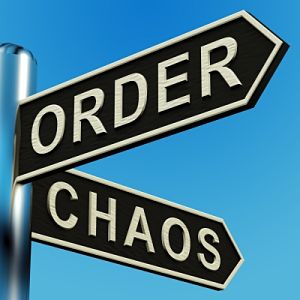 The extreme disorder of things – accumulated papers, toys from childhood, collection of all types can easily become clutter without organization. Clutter could also refer to a confused mental state and an obstacle to positive energy. Having an untidy environment can distract from clear thinking and focus on the task at hand.
The extreme disorder of things – accumulated papers, toys from childhood, collection of all types can easily become clutter without organization. Clutter could also refer to a confused mental state and an obstacle to positive energy. Having an untidy environment can distract from clear thinking and focus on the task at hand.
Most of us don’t plan on having clutter. Everyone has it and these are either unused or much loved stuff, unfinished projects among others. Disorganization happens but life functions better when we know where everything is. It might be important to find out why we can’t bear to part with an item. Projects waiting for attention are easily forgotten but it affects us. For example, a broken drawer needs repair. Meanwhile, it is a distraction causing irritation between family members.
Clutter can have far reaching negative effects. Some general outcomes are feeling tired, living in the past, disharmony and procrastination.
Just seeing a messy room can generate lethargy. Over a few days or weeks, the disorder is not lessened and more items such as mail and documents are added. Procrastination can set in. Unbeknownst to us, we’ve started a behavior that could easily develop in to a habit. If we share living space with anyone, disagreement can creep in.
We have clutter because we don’t know how to let go. Sentimental items like birthday cards and photos are part of the past. These may even be reminders of problems that have gone unresolved over the years and keeping them prevents new experiences from coming into our lives.
Buying stuff we don’t actually need is another major source of clutter. For example, in trying to become an expert at making bead jewelry, pliers of different sizes are acquired. They remain unused for years, forgotten and gathering dust.
Organization is important in preventing clutter. However, a routine must be followed. Weekly sorting through the mail would help. Going through the house every six months to clear cupboards, desks, and drawers to remove unwanted and unused stuff will definitely prevent clutter.
As Louise Smith said: “You can’t reach for anything new, if your hands are still full of yesterday’s junk.” Aptly put.
Written by Yoli P. – The Help
 There’s no preventing pressure and deadlines, causes of stress, from coming up in the professional and personal sides of life. Along with deliverables at work, there’s stress that’s bubbling in the periphery of an 8-hour day such as getting caught in traffic or not finding a document needed for a meeting that’s happening in 15 minutes. And according to medical opinion, about 90% of diseases are stress related. Its detrimental effects include cardiovascular ailments, risk of obesity, and depression.
There’s no preventing pressure and deadlines, causes of stress, from coming up in the professional and personal sides of life. Along with deliverables at work, there’s stress that’s bubbling in the periphery of an 8-hour day such as getting caught in traffic or not finding a document needed for a meeting that’s happening in 15 minutes. And according to medical opinion, about 90% of diseases are stress related. Its detrimental effects include cardiovascular ailments, risk of obesity, and depression.

